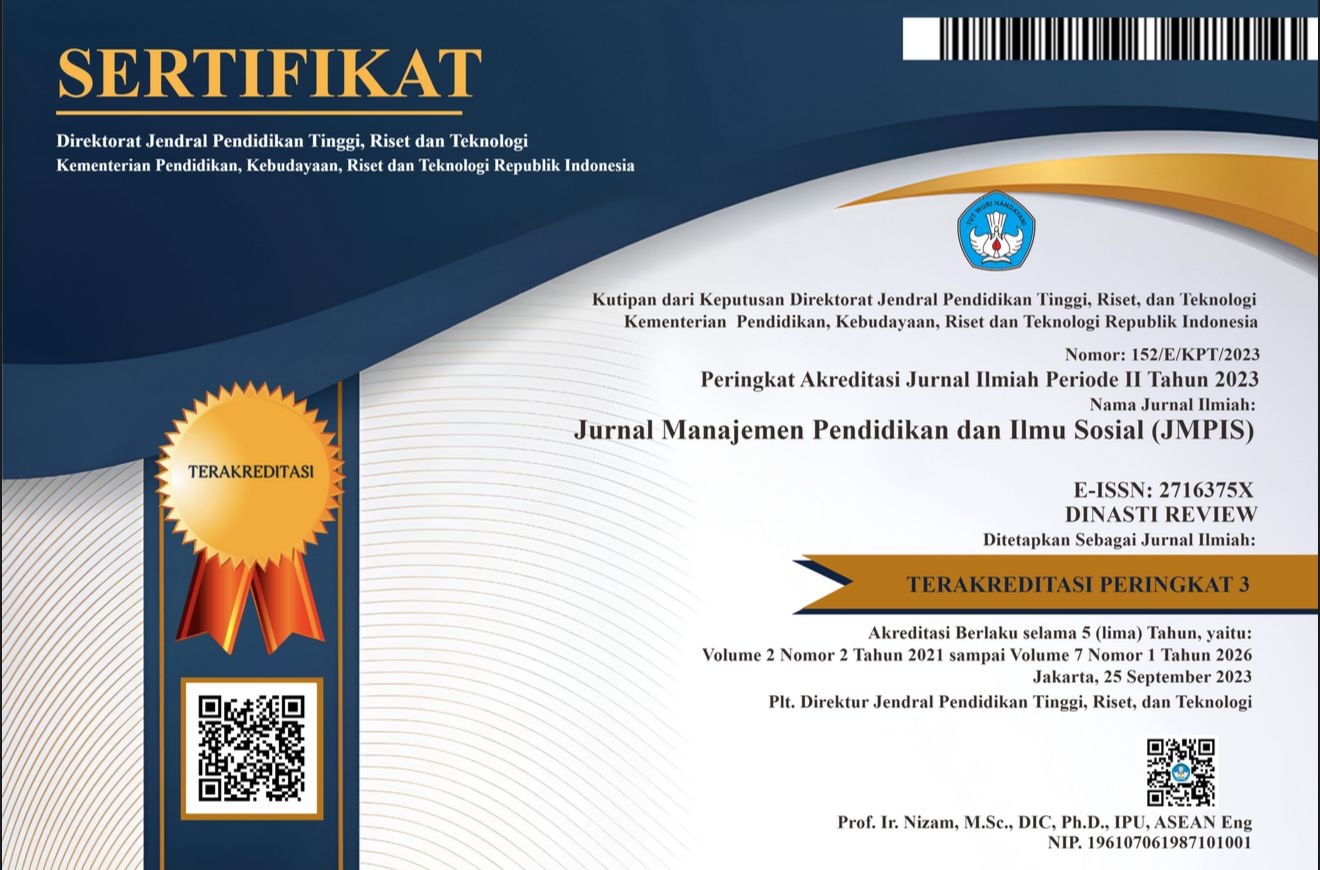Pengaruh Pengembangan Karir Beban Kerja dan Kinerja terhadap Turnover Intention Karyawan
DOI:
https://doi.org/10.38035/jmpis.v5i4.2222Keywords:
Niat Turnover, Pengembangan Karir, Beban Kerja, Kinerja, Kepuasan Kerja, Retensi KaryawanAbstract
Memahami niat turnover karyawan sangat penting bagi keberlangsungan organisasi. Turnover dapat menyebabkan biaya tinggi dan dampak negatif, termasuk penurunan produktivitas, gangguan moral dan budaya kerja, serta kehilangan pengetahuan dan keahlian. Faktor-faktor seperti pengembangan karir, beban kerja, dan kinerja memengaruhi niat turnover. Penelitian ini menggunakan pendekatan kuantitatif dengan desain survei cross-sectional untuk mengeksplorasi hubungan antara variabel-variabel tersebut. Temuan menunjukkan bahwa pengembangan karir memiliki pengaruh negatif yang signifikan terhadap niat turnover, sementara beban kerja dan kinerja memiliki pengaruh positif dan negatif yang signifikan. Interaksi antara ketiganya juga mempengaruhi niat turnover. Kesimpulannya, organisasi perlu memperhatikan strategi pengelolaan sumber daya manusia yang mengintegrasikan pengembangan karir, manajemen beban kerja, dan pengakuan kinerja untuk mengurangi turnover karyawan.
References
Adiputra, I. G., & Milleny, N. (2024). Effect of Career Development and Workload on Turnover Intention with Job Satisfaction as an Intervening Variable.
Aprillianti, N., Mansur, U., & Ningrum, H. F. (2023). The Effect of Workload on Turnover Intention with Job Satisfaction as an Intervening Variable. Jurnal Manajemen Universitas Bung Hatta, 18(1), 86-95.
Elian, S., Paramitha, C. D., Gunawan, H., & Maharani, A. (2020). The impact of career development, work-family conflict, and job satisfaction on millennials’ turnover intention in banking industry. Journal of Business and Management Review, 1(4), 223-247.
Fang, Y. C., Chen, J. Y., Zhang, X. D., Dai, X. X., & Tsai, F. S. (2020). The impact of inclusive talent development model on turnover intention of new generation employees: the mediation of work passion. International Journal of Environmental Research and Public Health, 17(17), 6054.
Hariyanto, D., Soetjipto, B. E., & Sopiah, S. (2022). The Influence of Workload and Environment on Turnover Intention Through Job Satisfaction and Organizational Commitment. PENANOMICS: International Journal of Economics, 1(3), 335-346.
Illahi, V. P. K., Fahmy, R., & Syahrul, L. (2022). The effect of workload and compensation system on turnover intention with job satisfaction as a mediating variable in PT. Xyz. Journal of Social Research, 2(1), 79-87.
Kasdorf, R. L., & Kayaalp, A. (2022). Employee career development and turnover: a moderated mediation model. International Journal of Organizational Analysis, 30(2), 324-339.
Lazzari, M., Alvarez, J. M., & Ruggieri, S. (2022). Predicting and explaining employee turnover intention. International Journal of Data Science and Analytics, 14(3), 279-292.
Lin, C. Y., & Huang, C. K. (2021). Employee turnover intentions and job performance from a planned change: the effects of an organizational learning culture and job satisfaction. International Journal of Manpower, 42(3), 409-423.
Rezeki, F., Baldah, N., Fachrurazi, F., & Nurastuti, P. (2023). The Influence of Career Development and Workload on Turnover Intention with Job Satisfaction as a Mediator. Asian Journal Of Management, Entrepreneurship And Social Science, 3(04), 1546-1556.
Surji, K. (2013). The negative effect and consequences of employee turnover and retention on the organization and its staff. European Journal of Business and Management, 5(25), 52-65.
Thedja, F., & Adiputra, I. G. (2023). Analys?s Of Turnover Intent?on Through Career Development And Employee Workload In Jakarta Indones?a. Asian Journal of Management, Entrepreneurship and Social Science, 3(02), 339-349.
Wibowo, A., Setiawan, M., & Yuniarinto, A. (2021). The effect of workloads on turnover intention with work stress as mediation and social support as moderated variables. Jurnal aplikasi manajemen, 19(2), 404-412.
Yao, W., Arshad, M. A., & Yu, C. (2024). The impact of human resource management practices on turnover intention: A literature review. International Journal of Academic Research in Economics and Management Sciences, 13(1)..
Downloads
Published
How to Cite
Issue
Section
License
Copyright (c) 2024 Azka Qanit Naufan Zakaria, Hapzi Ali

This work is licensed under a Creative Commons Attribution 4.0 International License.
Hak cipta :
Penulis yang mempublikasikan manuskripnya di jurnal ini menyetujui ketentuan berikut:
- Hak cipta pada setiap artikel adalah milik penulis.
- Penulis mengakui bahwa Jurnal Manajemen Pendidikan dan Ilmu Sosial (JMPIS) berhak menjadi yang pertama menerbitkan dengan lisensi Creative Commons Attribution 4.0 International (Attribution 4.0 International CC BY 4.0) .
- Penulis dapat mengirimkan artikel secara terpisah, mengatur distribusi non-eksklusif manuskrip yang telah diterbitkan dalam jurnal ini ke versi lain (misalnya, dikirim ke repositori institusi penulis, publikasi ke dalam buku, dll.), dengan mengakui bahwa manuskrip telah diterbitkan pertama kali di Jurnal Manajemen Pendidikan dan Ilmu Sosial (JMPIS).











































































